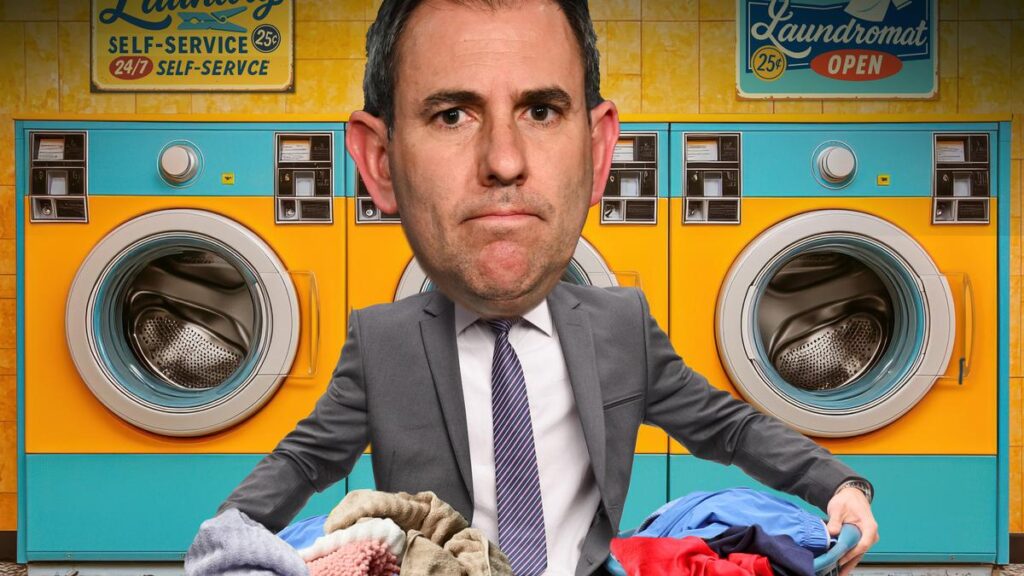
Laundry Day.....Jim Chalmers illustration :Don Lindsay
The Australian Government is facing significant challenges in its efforts to repair the national budget, with key ministers actively engaged in discussions on economic reform. On Wednesday, Jim Chalmers, the Treasurer, led an economic reform roundtable aimed at addressing pressing fiscal concerns. Meanwhile, his colleague, Mark Butler, the Minister for Health and Aged Care, took a bold step by diving into the complex issues surrounding budget repair.
Chalmers convened the roundtable to explore various strategies for stabilizing the economy, which has been under strain due to rising costs and shifting fiscal priorities. The discussions are expected to play a critical role in shaping the government’s budget strategy as it approaches the upcoming financial forecasts.
Amid these discussions, Butler’s actions have drawn attention for their symbolism. By publicly engaging with fiscal matters, he underscores the urgency of the situation while emphasizing the need for comprehensive reforms. The government’s approach will involve careful consideration of expenditure and revenue measures to ensure a balanced budget in the near future.
October 2023 marks a pivotal moment for the Australian Government as it grapples with the implications of its budget decisions. Analysts predict that effective budget repair will require not only political will but also the cooperation of various stakeholders, including businesses and community organizations.
The economic landscape is increasingly complex, influenced by global market trends and domestic pressures. As ministers like Chalmers and Butler navigate these waters, they must balance competing interests while fostering an environment conducive to sustainable growth.
In this context, the outcomes of the economic reform roundtable could have lasting effects on Australia’s fiscal health. Stakeholders are keenly observing the government’s next moves, particularly regarding potential reforms in taxation and public spending.
The importance of these discussions cannot be overstated. A successful reform strategy may lead to improved economic conditions for Australians, enhancing job security and overall quality of life. Conversely, failure to address these fiscal challenges could exacerbate existing issues, leading to further economic instability.
As the dialogue continues, the government will need to communicate transparently with the public about the challenges ahead and the measures being considered. In doing so, it can build public confidence in its commitment to responsible economic management.
Overall, the road to effective budget repair is fraught with challenges, but with leaders like Jim Chalmers and Mark Butler at the helm, there is hope for a strategic and balanced approach that could pave the way for a more resilient Australian economy.







